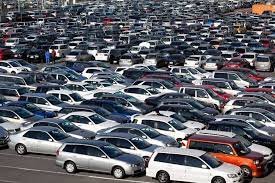Capitec repossessed cars in Port Elizabeth
Here’s how to buy a Capitec repossessed cars in Port Elizabeth on auction, cheap – and avoid getting a dud
- Repossessed cars are being sold at discounts that can reach up to 78%.
- Those discounts may be getting deeper in coming months, experts say.
- But repos come with risk, and you need to guard against buying a dud.
- If you can, buy a car that is still under warranty, or which has a comprehensive motor plan still in place.
- Here’s what else you can do to protect yourself when buying a repossessed car in South Africa.
South Africa’s major banks are expected to repossess and sell cars on auction at a rapid rate in coming months, as Covid-19 relief offers dry up.
And the market is already offering opportunity for buyers. Repossessed cars are being sold at discounts that can reach up to 78%.
But there are risks involved in buying a repo in South Africa, and you’ll want to guard against making a mistake – with or without a discount
Here is how to buy a repossessed car on auction in South Africa without getting a dud.
Check for warranties and motor plans
A Johannesburg auction manager, who wished to remain anonymous, says one of the best ways to protect yourself from buying a dud is only to buy vehicles that are still under warranty, or which have a comprehensive motor plan in place.
Most car manufacturers offer warranties that last at least three years or 100,000km, whichever comes first. Repo or not, those protect the owner of the car against the failure of most mechanical or electrical components.
If during the onsite inspection of the vehicle prior to the auction you miss a major fault, the warranty or comprehensive motor plan could cover it, saving you a lot of money.
Make sure you know what the car you’re planning to buy is worth
It is essential that before you place your first bid, you know what the car you are planning to buy is worth based on its make, model, year, kilometres on the clock, and general condition. Though discounts can be cheap, we found that some vehicles can auction at above their nominal market value.
A website and app such as TransUnion’s FirstCheck can help you determine the anticipated value of the car.
When you view the vehicle, make sure you inspect it thoroughly – including checking its service record
Two days before bidding starts, most auctions will let you view the vehicles to go under the hammer.
During this time, inspect the vehicle you’re considering buying, thoroughly. If you can, take along an expert, like an experienced mechanic.
If the car has a service record, make sure you review it to see if the previous owner serviced it regularly and to see what work got carried out.
But be warned, the bank or auction house might not provide you with the recovered car’s history, including its service record.
You cannot test-drive the vehicle, but some auction houses might allow you to start the car’s engine.
Not all cars may be available for on-site inspection, and the auction house might have some of these cars in far-flung places.
This means that you won’t be able to inspect such vehicles and will have to place your bid without having done any inspection – which could be very high-risk.
Get the vehicle’s VIN number
It’s important to get hold of the car’s Vehicle Identification Number (VIN).
You can then check whether the car has been involved in an accident, or is a stolen vehicle.
You could also go to a police station and ask the police to use do a VIN check for you.
Be aware of auction registration and other extra costs
To register for a repossessed car auction, you need to put down a deposit of between R5,000 and R7,000, which is refundable if you don’t buy a car during the auction.
If you are a South African, you need to provide the auction house or the bank with proof of residence and a copy of your identity document.
There are also extra costs that you need to keep in mind.
Most auction houses or the banks involved in a repossession auction will charge you documentation or an administrative fee of up to R3,000.
Some auction houses charge a buyer’s commission payable by the buyer of a car to the auction house. This buyer’s commission can be in the order of 5% of the value of the sale price.
Nedbank’s Motor Finance Corporation (MFC) charges a fee of R571.74 for the inspection report completed by vehicle inspection company Dekra Automotive South Africa. This report is available for each repossessed car that it auctions.
On top of these extra costs, you need to add value added tax (VAT).
Sort out your finances first
Before you register for an auction, know how much money you have to spend.
If you don’t have enough of your own money to buy the car you’ve got your eye on, organise finance from a local financial institution.
Here are the major auction houses used by the big banks to sell repossessed cars:
- Aucor Auctioneer
- Auction Operation
- Bidvest Burchmore’s
- Claremart Auctioneers
- Devco Auctioneers
- Imperial Auctions (Motus Auto Auctions)
- MyCars.co.za
- Park Village Auctions
- Tirhani Auctioneers
- WH Auctioneers
WesBank holds a luxury car auction once a month, selling car brands, like Audi, BMW, Jaguar, Land Rover, Lexus, Maserati, McLaren, Mercedes-Benz, Porsche and Volvo.
Subscribe to our WhatsApp channel to get the latest posts delivered right to your dm.



Comments